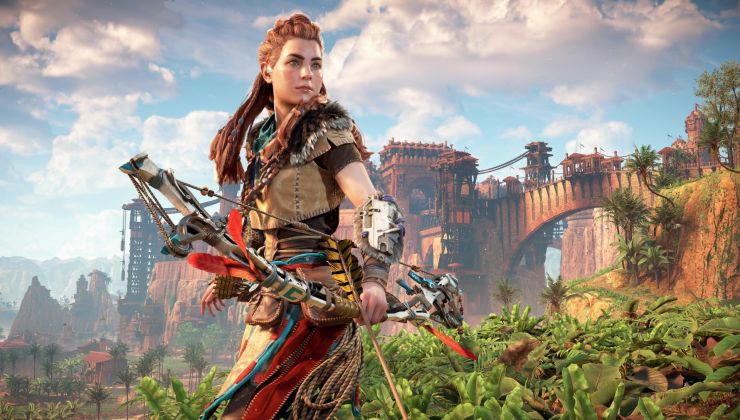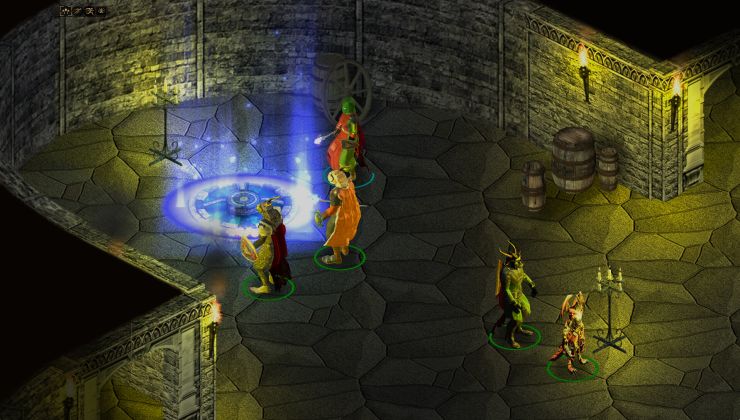Ahead of the launch of Stadia next month for those who picked up the Founders Edition, Google are chatting a bit more about their plans for the Debian Linux-powered game streaming service.
Firstly, Google just announced their first-party developer Stadia Games and Entertainment will be located in Montréal. Additionally, they have a new interview up with GamesIndustry.biz to go over their grand plans for the service. This includes multiple first-party game developers run by Google, Stadia Games and Entertainment is just the first. Speaking to Jade Raymond, the VP and Head of Stadia Games & Entertainment they said:
We have a plan that includes building out a few different first-party studios, and also building up the publishing org to ship exclusive content created by indie devs and other external partners.
The games Google manages to make and secure with Stadia will be one of the big things that makes or breaks it, on top of how accessible it is with things like bandwidth use which is likely to be a big barrier with many people having monthly limits.
Part of their plan is to make games that other platforms can't handle. Games are of course often limited by the processing power of your PC, with top-end games requiring some pretty expensive consumer hardware to perform well. Not so much a problem with Stadia, since games will run across their ridiculously powerful servers and stream it into your Chrome browser window. This is all part of their plan of course:
There are a lot of things that being cloud native enables that you're just not going to be able to see on other platforms, and I think that's the job of first-party, to really show that off and let people imagine what those things are.
Think about it, AI that's a lot smarter powered by something like Google Duplex, many times more people available on the screen than would be possible before and so on. There are a lot of possibilities with.
Raymond said in the interview, that they do have some exclusive games currently in the works that should demonstrate what they mean with Stadia's server power. However, it could be "several years" before some big new IP comes out that fully takes advantage of it but they claim we should see some that push the boundaries coming out every year.
In other news: Stadia Founder’s Edition has now completely sold out too, as announced on Twitter a few days ago. However, it has been replaced with the Stadia Premiere Edition which also gives access on November 19. On top of that, the recently announced Darksiders Genesis will hit Stadia at the same time as the Windows release on December 5.
There are a lot of drawbacks to the service, many of which we've mentioned before. However, for Linux gamers especially it really could fill a huge gap. Having access to things like online multiplayer titles that will never be ported to Linux and possibly never work in Steam Play is an exciting one.
Stadia is set to launch on November 19. We have a Founders Edition ordered to see what we think, however we may be in for a wait since they're shipping out based on your order date. It's going to be interesting to see what the experience is like when played on Linux. Stay tuned.
Quoting: KlausFor any game that is worthwhile enough for exclusivity to make a difference, I will likely play only that game, until I'm done with it. So for as long as I want to play it, I'd subscribe to that service, and cancel afterwards.. . . Because cancelling these services is always sooo easy.
Quoting: TermyTechnical Exclusivity is kind of OKOK as long as they don't shoehorn extra stuff in and then declare it's not portable without the extra stuff.
I wouldn't be against a lite version running on my computer. And technical exclusivity goes both ways, I'm pretty sure that there is stuff my PC can do that's not possible in the cloud.
Last edited by MayeulC on 4 November 2019 at 11:46 am UTC
Quoting: TazzaYay. So a proprietary company is running Linux on their back end with the condition of always being online and with no access to any binaries running on that back end.
What's next? Celebrating all the banks for running Linux servers on their backends? Thought not.
None of this will do *anything* for Linux gaming.
Exactly. This is Linux gaming in the same way Android is Linux phoning. Exactly what was expected and will not help bring more games to our platform.
Quoting: KetilCloud games has a lot of potentials that local games doesn't. A game with a traditional client/server model has to deal with a huge latency in the communication between the server and the client. For a game developed specifically to be run in the cloud, this is slightly different. We can call it server/client/viewer or something. You have one server park, and one client/viewer pair per user. The main latency is between the client and the viewer, not between the server and the client. This means that more calculations can be moved from the client to the server, and you can get away with fewer duplicate calculations.
That's not really relevant, or "good for gamers" at all. Any such game will generate way more traffic (video files are huge after all, a 90 minute movie in HD can be 60 GB).
Cloud games have the real potential for google to shove ads in games as well, that will happen. (I was shocked to find out that microsoft does that as well, and their licences are paid too) You will have no option to turn it off. Also, i doubt this will have any impact on games running on linux. From all the bits posted here, it just seems they will just use the already existing open technology like wine to run the games and for the ones they have developed for Stadia they will have no interest to release on free systems (kinda like epic launcher and gog galaxy).
It will have no modding/etc. either, except maybe as a paid service (with more ads).
I still have serious doubts that the people that may be interested in this have a powerful enough pc to handle streaming though, let alone a fast/stable enough connection to do so.
That said, I can't recall an original source for this; With media reports alone, it is hard to tell whether the effect is actually relevant compared to usage before, or if it only looks large because the emissions are concentrated to a single provider rather than decentralized.
The reported logic is essentially:
- Streaming is better than driving to the Video shop,
- but worse than taking a bike to the video shop,
- and definitely made worse, as the flat-rate character of streaming ups the total consumption.
It isn't really clear to me for video-streaming, given CDNs, how it really compared to pre-digital watching cable TV all day. It is even less clear, how the effects of game streaming would even be estimated.
Last edited by Klaus on 3 November 2019 at 9:58 am UTC
Quoting: KlausLittle side effect: Supposely, video streaming ALREADY is a huge burden on the climate due to its electricity consumption, and with game streaming this would only get worse.Tricky. Presumably streaming video is using much more power than it ever did before simply because there are more people watching more video, and importantly at higher resolution, and presumably power used is in some manner proportional to information sent. So there has to have been major growth in the power use of streaming video itself.
That said, I can't recall an original source for this; With media reports alone, it is hard to tell whether the effect is actually relevant compared to usage before, or if it only looks large because the emissions are concentrated to a single provider rather than decentralized.
The reported logic is essentially:
- Streaming is better than driving to the Video shop,
- but worse than taking a bike to the video shop,
- and definitely made worse, as the flat-rate character of streaming ups the total consumption.
It isn't really clear to me for video-streaming, given CDNs, how it really compared to pre-digital watching cable TV all day. It is even less clear, how the effects of game streaming would even be estimated.
On the other hand, old time pre-digital cable was I think a way less power-efficient format for information transfer. And then on the third hand, I reckon there were simply far fewer people living in first-world-equivalent conditions then; there are more people streaming video than used to watch videos, let alone use cars to go and get the videos they watched.







See more from me